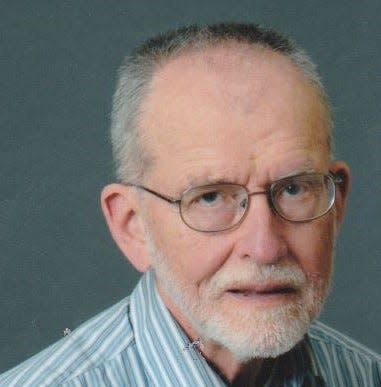Paul deLespinasse: Protecting democracy an investment many unwilling to make
If there is anything constant about political systems it is change. Sometimes, change can be good. For example, previously undemocratic countries can evolve to become democracies. England progressed from absolute monarchy in the time of Henry VIII to today's democratic, constitutional monarchy.
Unfortunately, movement in the other direction is also possible. Not all change is progress. Weimar Germany after World War I was a democracy, but the democracy was scuttled by the Nazis led by Adolf Hitler.
And now, in the 21st century, democracy is imperiled in a number of countries.

In democracies, top leaders need to win elections in which nearly all adult citizens can vote. For democracy to be possible, people in general must be willing to accept the voters' decision even when their preferred candidates have not won.
And in order for people in general to accept the voters' decision, they must be convinced that votes are being counted honestly and accurately.
There is one more requirement before democracy can be preserved: voters must place a high value on democracy and be willing to invest in it. Investment is what we do when we decide to forgo immediate satisfaction of some of our desires in order to get more satisfaction of our desires in the long run.
It is not clear to me that my fellow Americans are willing to invest in democracy if it means they have to accept election of candidates whose ideas or persona they detest.
The usual examples of investment are economic. For example, instead of spending all our money today to buy something we want, we may put some of it in the bank at interest or buy stocks or bonds, increasing our future income so we can then buy more of what we want.
Investment can also apply to decisions not usually considered economic decisions. If, instead of getting a job straight out of high school, and forgoing the income that job would have produced, we elect to pursue additional education or training that will improve our future earning power or allow more interesting work, we are investing.
Edward Banfield defined "class" in terms of people's willingness to invest, rather than just in terms of how much money they have or earn. He considered the "lower class" to be people who could not see beyond their noses and wouldn't give up immediate satisfaction of their desires in order to increase later satisfaction.
Banfield's "middle class" could look further ahead, and therefore would get more education and earn more in the future. His "upper class" would be willing to give up immediate satisfaction if it would improve the chances of their grandchildren — they had a very long-range outlook.
To preserve democracy a substantial proportion of voters must be middle or upper class in Banfield's sense. They must be willing to invest in democracy, even when it means acknowledging the election of candidates whose policy ideas they consider less than ideal.
A lot of well-informed people think American democracy is at risk. Recently, in a totally unprecedented move, the centers, libraries and foundations memorializing nearly all past presidents of both parties from Hoover to Obama issued a joint call to protect American democracy.
Valerie Jarrett, head of the Obama Foundation, noted that "There is a toxicity to the climate right now that is inconsistent with a strong democracy." She added that "open and fair elections, smooth and orderly transitions of power, observance of the rule of law. These are the foundational pillars of democracy."
On the last day of the 1787 Constitutional Convention, a woman asked Benjamin Franklin, one of the distinguished delegates, "what have we got, a republic or a monarchy?" Replied Franklin, "a republic, if you can keep it."
To update Franklin, we now have a democratic republic, if we can keep it.
— Paul F. deLespinasse is professor emeritus of political science and computer science at Adrian College. He can be reached at pdeles@proaxis.com.
This article originally appeared on The Holland Sentinel: deLespinasse: Protecting democracy an investment many unwilling to make
